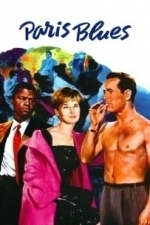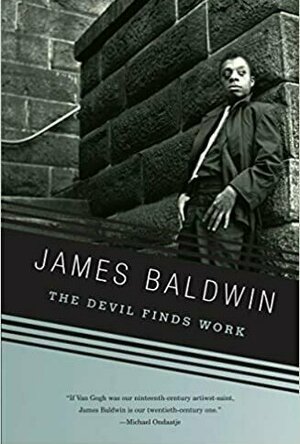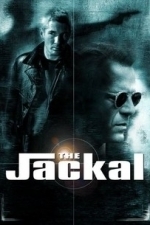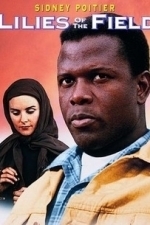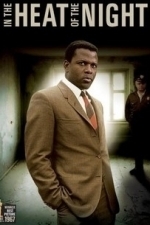Search
Search results
Andre Holland recommended Paris Blues (1961) in Movies (curated)
Yara Shahidi recommended The Devil Finds Work in Books (curated)
Dean (6927 KP) rated The Jackal (1997) in Movies
Apr 30, 2018
Finally got round to seeing this, been meaning to for years! This is a very enjoyable action/thriller centered around a hunt for an elusive hitman. The emphasis is definitely on the action, seeing Willis go through about 10 different looks as a master of disguise was fun. The tension builds as the day of the hit gets closer, will the FBI and Russian agents be able to stop him? This has a great cast including Richard Gere, Sidney Poitier and even Jack Black makes an early film appearance. The whole Manhunt, assassin films have been done bigger and better since this was made. However this is still a classy enjoyable film.
BankofMarquis (1832 KP) rated Lilies of the Field (1963) in Movies
Jan 31, 2022
Strong Performances by Poitier and Skala
The film that Sidney Poitier won his Best Actor In A Leading Role Oscar for (becoming the first Black Man to do so) is the type of film that is rarely made these days - a simple film of love, faith, friendship and inspiration.
Written by James Poe from the Novel by William E. Barrett, LILIES OF THE FIELD tells the tale of a drifter who is the answer to a Nun’s prayer. Praying to the God that she believes in, she asks for help in getting a Church built in the desert in Arizona.
Simply Directed by Ralph Nelson (fresh off his success with REQUIEM FOR A HEAVYWEIGHT), Lilies of the Field is a positive life (and faith) affirming film from start to finish that will touch your heart…and your soul.
Poitier stars as handyman Homer Smith who’s car breaks down where a group of Nuns are trying to start a parish (and get a church built). Following the machinations of Mother Maria (Lilia Skala - in an Oscar nominated turn of her own), Homer never leaves and ends up being inspired - and inspiring others - to get this church built.
But it is the journey - not the destination - of this film that matters. Homer is thwarted time and time again by Mother Maria in his attempts to leave and his protestations that this is the “final job, then I’m leaving” is met with steeled determination by Mother Maria who has an unflappable belief that Homer is the answer to her prayers.
This film hangs on the relationship between Homer and Mother Maria and these 2 fine actors deliver the goods. Poitier is a deserved winner of the Best Actor Oscar (though he would fret for years that his win was a “token” win - which it is not). His Homer Smith is charming and forceful with a “lost” look in his eyes when he first arrives in the desert. This, in turns, changes to fierce determination to get that church built.
The real hero of this film is the under-rated performance of Skala (who did a series of TV Guest star appearances in the 50’s, 60’s and 70’s but never really had a movie role - before or since - that would rival this one). It would have been tempting to make Mother Maria a one-note ice queen in her dogged determination - and belief - that Homer was sent by God, but in the hands of Skala there is a warmth in her eyes that serves as a counterbalance to her resolve.
It is the relationship of these 2 characters - and the ramifications of this relationship to the parish community - that is the soul of this film, and this soul runs deep. The relationship between Homer and Mother Maria is not, exactly, a friendship, but more of a strong work bond. 2 persons united in a common goal - for the common good.
Not the fastest moving of all films you will view, but the heart and soul that is at the center of this film - along with 2 very strong central performances - will warm your heart.
Letter Grade: A-
8 stars (out of 10) and you can take that to the Bank(ofMarquis)
Written by James Poe from the Novel by William E. Barrett, LILIES OF THE FIELD tells the tale of a drifter who is the answer to a Nun’s prayer. Praying to the God that she believes in, she asks for help in getting a Church built in the desert in Arizona.
Simply Directed by Ralph Nelson (fresh off his success with REQUIEM FOR A HEAVYWEIGHT), Lilies of the Field is a positive life (and faith) affirming film from start to finish that will touch your heart…and your soul.
Poitier stars as handyman Homer Smith who’s car breaks down where a group of Nuns are trying to start a parish (and get a church built). Following the machinations of Mother Maria (Lilia Skala - in an Oscar nominated turn of her own), Homer never leaves and ends up being inspired - and inspiring others - to get this church built.
But it is the journey - not the destination - of this film that matters. Homer is thwarted time and time again by Mother Maria in his attempts to leave and his protestations that this is the “final job, then I’m leaving” is met with steeled determination by Mother Maria who has an unflappable belief that Homer is the answer to her prayers.
This film hangs on the relationship between Homer and Mother Maria and these 2 fine actors deliver the goods. Poitier is a deserved winner of the Best Actor Oscar (though he would fret for years that his win was a “token” win - which it is not). His Homer Smith is charming and forceful with a “lost” look in his eyes when he first arrives in the desert. This, in turns, changes to fierce determination to get that church built.
The real hero of this film is the under-rated performance of Skala (who did a series of TV Guest star appearances in the 50’s, 60’s and 70’s but never really had a movie role - before or since - that would rival this one). It would have been tempting to make Mother Maria a one-note ice queen in her dogged determination - and belief - that Homer was sent by God, but in the hands of Skala there is a warmth in her eyes that serves as a counterbalance to her resolve.
It is the relationship of these 2 characters - and the ramifications of this relationship to the parish community - that is the soul of this film, and this soul runs deep. The relationship between Homer and Mother Maria is not, exactly, a friendship, but more of a strong work bond. 2 persons united in a common goal - for the common good.
Not the fastest moving of all films you will view, but the heart and soul that is at the center of this film - along with 2 very strong central performances - will warm your heart.
Letter Grade: A-
8 stars (out of 10) and you can take that to the Bank(ofMarquis)
Darren (1599 KP) rated In the Heat of the Night (1967) in Movies
Sep 13, 2019
Characters – Virgil Tibbs is one of the best homicide detectives in his home city, he has earnt this position with hard work and higher education. He finds himself stuck in a racial divided town that does require his help, but doesn’t want to accept it. Virgil is strong and creates some of the most iconic scenes in film history. Gillespie is the chief that must reluctantly accept Virgil’s help, he is racist, but knows he needs Virgil’s help when it comes to solving this case, he must learn to be accepting of Virgil while being put under pressure by the supremacist that live in he area to rid the town of Virgil. Sam is the deputy that takes an instant dislike to Virgil, but he is mostly just a lowlife cop that gets past doing the basics of the job. The cast is filled the generic racist characters that don’t want to accept a black man helping with the investigation.
Performances – Sidney Poitier gives us one of the most memorable and powerful performances in any crime film, one that has iconic scenes that will forever stand the test of time. Rod Steiger is brilliant to, he shows us just how conflicted his character is to do the right thing and to keep his backwards mind on racial differences. When we look at the rest of the performances, we see good work from the whole cast.
Story – The story here follows a black detective forced into helping solve a murder in Mississippi while the racial hate between the two whites and blacks still comes off strong. There is two ways to look at this story, first we see how crime takes place and must get solved, which is interesting to keep us guessing throughout because of the large number of potential suspects. That however, isn’t the main story here, the racial divide between the people of town makes this more interesting because seeing how different characters interact with Virgil, some with open smiles, some with gritted smiles and some with pure hate. This shows us how we must witness how America was still filled racial hate in certain states that can point fingers before solving the crimes.
Crime/Mystery – The crime in this movie is murder, though trying to solve this opens up plenty of smaller crimes and deals with the racial hate still going on at the time in Mississippi, the mystery keeps us guessing to just who was the one the committed the crime in the first place.
Settings – The film takes place in Mississippi which for the time was still facing the divide between black and whites, this ups the tension for Virgil trying to solve the crime while also showing us the smaller crimes going on through the town.
Scene of the Movie – They call me Mister.
That Moment That Annoyed Me – The locals can feel too generic.
Final Thoughts – This is one of the greatest crime movies you will ever see, it keeps you guessing from start to finish and deals with the racial hatred that was still going strong in the 1960s America.
Overall: Must watch crime mystery.
Performances – Sidney Poitier gives us one of the most memorable and powerful performances in any crime film, one that has iconic scenes that will forever stand the test of time. Rod Steiger is brilliant to, he shows us just how conflicted his character is to do the right thing and to keep his backwards mind on racial differences. When we look at the rest of the performances, we see good work from the whole cast.
Story – The story here follows a black detective forced into helping solve a murder in Mississippi while the racial hate between the two whites and blacks still comes off strong. There is two ways to look at this story, first we see how crime takes place and must get solved, which is interesting to keep us guessing throughout because of the large number of potential suspects. That however, isn’t the main story here, the racial divide between the people of town makes this more interesting because seeing how different characters interact with Virgil, some with open smiles, some with gritted smiles and some with pure hate. This shows us how we must witness how America was still filled racial hate in certain states that can point fingers before solving the crimes.
Crime/Mystery – The crime in this movie is murder, though trying to solve this opens up plenty of smaller crimes and deals with the racial hate still going on at the time in Mississippi, the mystery keeps us guessing to just who was the one the committed the crime in the first place.
Settings – The film takes place in Mississippi which for the time was still facing the divide between black and whites, this ups the tension for Virgil trying to solve the crime while also showing us the smaller crimes going on through the town.
Scene of the Movie – They call me Mister.
That Moment That Annoyed Me – The locals can feel too generic.
Final Thoughts – This is one of the greatest crime movies you will ever see, it keeps you guessing from start to finish and deals with the racial hatred that was still going strong in the 1960s America.
Overall: Must watch crime mystery.
